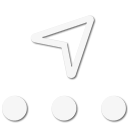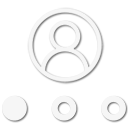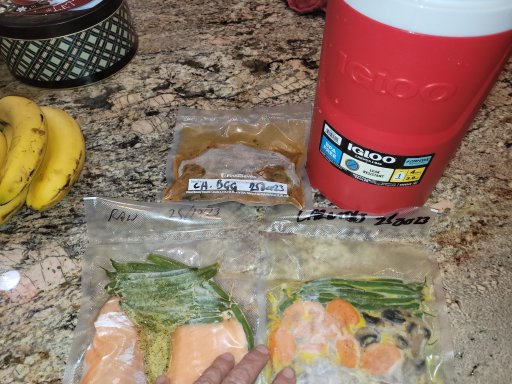I googled and watched 100 vids on this.
NO ONE ACTUALLY TESTS CORRECTLY!!
almost all are based on false labeling of wattage, as rinky dink youtubers don't access microwave cables for amps, etc.
Or they take a snapshot of watts, then assume it stays same for whole cook. Worst, most of them just measure time to boil.
I did find a few that were better, and put together a decent picture. I also purchased a good quality kill-a-watt style meter that will measure total energy use over time, and have been testing at home.
Here is what I have found. My slant is "which of these will do the job with least drain on my battery". I concentrated on heating water, as it is the only thing you know EXACTLY how much joules it takes to raise temp, can measure precisely, and is key to camping.
Also of critical note, for drinks we actually target 190f for brewing coffee or tea, and 140f for actual drinking so instant coffee or hot chocolate-- you can save a lot of watts by not overheating then cooling it to drink!
Quantity-- standard size insulated travel mugs eveeyone uses hold 500ml, so large coffee for 2 people needs 1 L of water.
1. Actual device efficiency is NOT the critical factor! More important is heat capture and insulation to prevent heat loss! So, the size and shape of the pan bottom for gas, the insulation of your pan sides and lid for gas and induction. And how long it stays hot while you cook for 5 or 10 minutes. Because very few pots have insulated sides, gas and induction lose heat thru those and water cools faster, which all has to be considered for how you cook.
2. Heating the actual correct amount of water, but not more, is key. Immersion coil, kettle, and microwave all shine here because you easily measure out exactly 1 L for two 500ml large insulated coffee travel mugs. Microwave especially you tend to not heat more than needed.
3. Heating water. Immersion heater coil you stick into a cup is most efficient, if your cup is insulated and you put a lid on. Almost 100% electric to heat conversion.
4.. An electric kettle is almost as good. If you get one with insulated sides and bottom, it is about same, but hard to find with insulated sides!
5. Induction is supposedly next most effient at 78% measured. However, in actual use the wattage spike as induction cycles on and off means you need a much larger inverter than the specified wattage.
6. Microwave, you can get a small 700 or 800 w one. They are supposedly 65% efficient, and despite high power use, you do short precisely targeted usage. With precise water measurements in an insulated plastic travel mug, it can be very efficient in actual use, and is for sure the most efficient to reheat meals.
7. Camping, gas is by far the best heat energy per weight, waaay more btus are in 1 lb of propane than 1 lb of battery. Zero comparison here. Only the need or desire to NOT use propane for some reason, makes electric cooking a contender.
Here are the measurements I have taken so far. I gathered all this to write a blog bit haven't finished testing yet so not organized.
1L water at room temp of 76f, 24.5c, heat to 212. Sm kettle, coleman standard double stove on hi propane. 136f rise, or 75.5c. 4min 20sec, 260sec.
Most peeps prefer to drink at 140f, just 47% of the boil rise. Best temp to brew coffee and tea is 190f, 88c, 76% of the rise or 57c. Assuming linear between 76 and 212f,
122sec for instant or cocoa, 199sec to brew.
It takes 4184 joules to raise 1kg or L water by 1 degree c.
Calculate the kilowatt-hours (kWh) required to heat the water using the following formula: Pt = (4.2 × L × T ) ÷ 3600. Pt is the power used to heat the water, in kWh. L is the number of liters of water that is being heated and T is the difference in temperature from what you started with, listed in degrees Celsius.
So, to boil 1L from 76f or 24.5c, 88watt hours, or 300btu.
To heat for brew, 67wh
To heat for instant or cocoa 42wh.
So, coleman burner transfers 88wh in 260sec
1 wh = 3.412 btu.
Popular mechanics measured 112wh to boil 1L water from 25c. With induction. So to get an actual 88wh input, 112wh was used, making it 78% efficient.
Watt meter was used to measure immersion heater boil 1L water.
Microwave electricity wH actually used was measured. 700 to 800w "microwaves are approx 65% efficient" , haven't seen actual measured test data. But supposedly 135 to 145 wh to boil 1L
Conclusions:
1. Use propane if able, best weight tradeoff for camping.
2. For drinks, use immersion coil first if 500ml or so in mug. Use electric kettle next.
3. If you have a decently thick bottom ferrous kettle or pot for induction, and your inverter can handle, and you measure temps and don't overheat, induction is next.
4. Microwave last.
Food: reheating thawed meals, vacuum packed, microwave is best, cleanest, least extra electricity for cleanup.
Combined All in One Concept: I want hot water for drinks, to heat prepacked meals sous vide style, and for cleanup! If you do one water heat, dump it into a 2 gallon wide mouth thermos, you can then make your drinks, stuff vac packed pouches in there to heat, and close lid. Now hot water doea triple duty-- drinks, cooking, and later cleanup.





